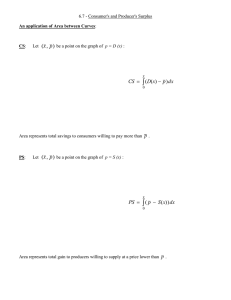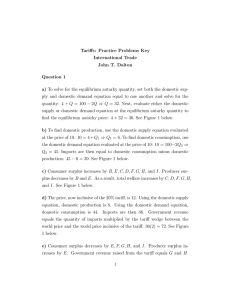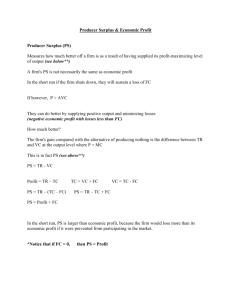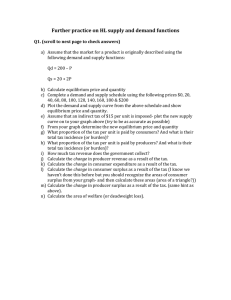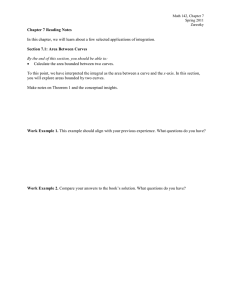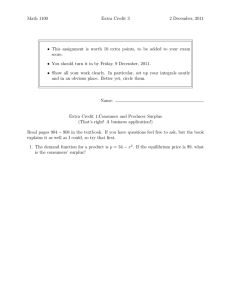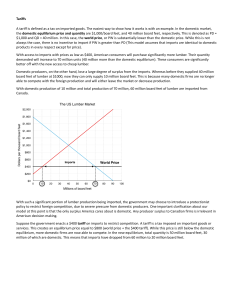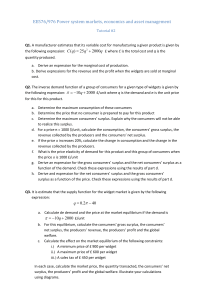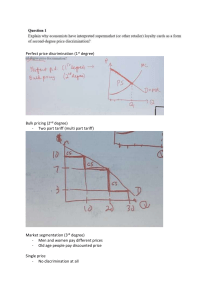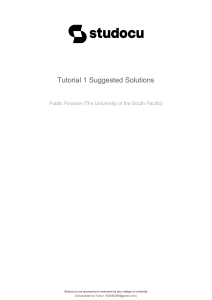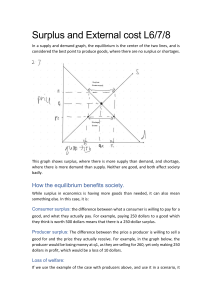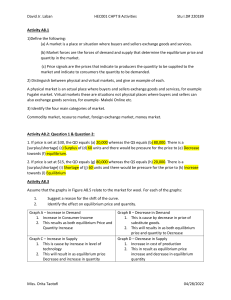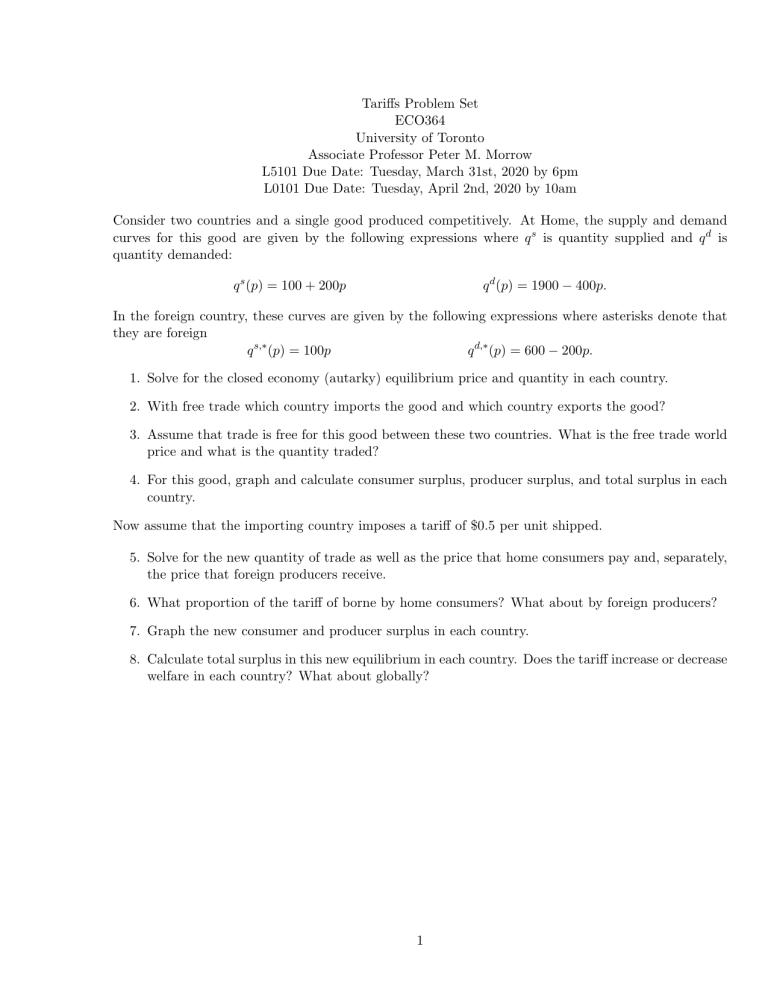
Tariffs Problem Set ECO364 University of Toronto Associate Professor Peter M. Morrow L5101 Due Date: Tuesday, March 31st, 2020 by 6pm L0101 Due Date: Tuesday, April 2nd, 2020 by 10am Consider two countries and a single good produced competitively. At Home, the supply and demand curves for this good are given by the following expressions where q s is quantity supplied and q d is quantity demanded: q s (p) = 100 + 200p q d (p) = 1900 − 400p. In the foreign country, these curves are given by the following expressions where asterisks denote that they are foreign q d,∗ (p) = 600 − 200p. q s,∗ (p) = 100p 1. Solve for the closed economy (autarky) equilibrium price and quantity in each country. 2. With free trade which country imports the good and which country exports the good? 3. Assume that trade is free for this good between these two countries. What is the free trade world price and what is the quantity traded? 4. For this good, graph and calculate consumer surplus, producer surplus, and total surplus in each country. Now assume that the importing country imposes a tariff of $0.5 per unit shipped. 5. Solve for the new quantity of trade as well as the price that home consumers pay and, separately, the price that foreign producers receive. 6. What proportion of the tariff of borne by home consumers? What about by foreign producers? 7. Graph the new consumer and producer surplus in each country. 8. Calculate total surplus in this new equilibrium in each country. Does the tariff increase or decrease welfare in each country? What about globally? 1
